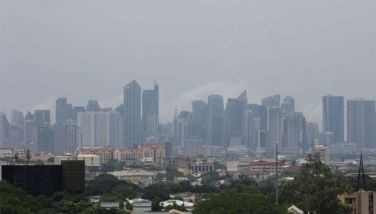Bonds over boundaries

The pursuit of happiness. The search for a better life for ourselves and our families. These are fundamental driving forces for many people, and in some places is recognized as a human right. But when this pursuit takes people beyond national borders, it can become a cause for hardship, discrimination, persecution and even death. This is the plight of the migrant.
Migration has always been a part of human history, even before the idea of nations and borders existed. Migration has always played an important role in making societies economically rich and culturally dynamic. Someone who is willing to uproot themselves from the life they know in order to find a better one has already demonstrated a determination above and beyond many others, and it’s no doubt the reason why migrants have consistently proven to be the most hard-working and entrepreneurial people in any given place. In today’s globalized and interconnected world, migration has become even more important in the international economy and more feasible for the common person.
Unfortunately, acknowledging the importance of migration has not brought with it any accompanying improvement in the treatment of migrants themselves. Far from being seen as positive additions to a host country, or even as fellow human beings, all too often migrants are exploited, marginalized and treated with disdain and contempt.
Recent headlines from around the world will bear this out. At the border between Poland and Belarus, thousands of migrants have been used as tools in a political battle between Belarus and the European Union, where they spent weeks trapped in a freezing no-man’s land between Belarusian border guards who refused to allow them to turn back and Polish police who were authorized to expel migrants, subjected to tear gas and water cannons.
In Mexico, a new caravan formed of Central American and Haitian migrants planned to head for the border with the United States. In the English Channel, 27 migrants – including children and a pregnant woman – drowned attempting to cross, the worst migrant-related disaster on record in the channel, leading to finger pointing between British and French government officials as crossings of the channel this year have more than doubled the numbers in 2020. In Greece, on the other hand, activists who sought to rescue migrants from similar deaths have been jailed and tried for espionage.
Migration has become inextricably linked with many issues and presents many difficult challenges for nations whose leaders may feel the need to enact harsh policies against migration. But to get a real picture of migration, it’s important to look at it in its totality. After all, migrant is a very broad term – according to the United Nations, “most experts agree that an international migrant is someone who changes his or her country of usual residence, irrespective of the reason for migration or legal status.”
Migrant is a broad umbrella term that includes many kinds of people, each of whom have specific needs and attributes: we must distinguish between voluntary migrants and forced migrants (such as those illegally trafficked); between those who move for political reasons (refugees), educational reasons (international students) and those who move for economic reasons (labor migrants); between those sought by the host country (such as highly skilled migrants) and those not; and between regular and irregular migrants.
It doesn’t help that there is frequently an overlap between these categories: if you are taking a job far from your family in order to feed them, can you truly be said to be doing so completely voluntarily? If you are not fleeing political persecution but internal conflict and insecurity in your home, should you not be called a refugee? How long does one remain a “migrant” as opposed to a new citizen of the host country? One of the reasons for the plight of migrants is the inability of some governments to know when migrants should be treated differently, and when they should be treated equally.
Migration, like almost every aspect of our lives, has also been affected by the COVID-19 pandemic. While many migrants – health workers, couriers, teachers – have been at the forefront of the battle against COVID-19, this has not resulted in better treatment of migrants as a whole. Many faced great hardship either in returning home or going to their jobs because of quarantines and travel restrictions, stranding many. There was also a sharp rise in xenophobia surrounding those that needed to travel, such as seafarers, who were seen as potential carriers of the virus and stigmatized, in spite of their essential work.
Many nations see the potential problems of migration but spare no thought for the problems of migrants themselves. The Philippines, with as many as 2.2 million migrant workers as of 2019, should not be one of those nations. We have long called our overseas workers as our new heroes, but while we can and should recognize their accomplishments and sacrifice, it would be better if the Philippine government would be the hero of our OFWs. We should do whatever we can to ensure that host countries are aware of their obligations towards our OFWs, that they are treated with the proper respect and that aid is readily available when they are not.
But while our migrant workers are some of the most vulnerable of our people, government policy must not stop with them but extend to those others of our citizens who leave our shores, particularly victims of illegal trafficking. Pushing further, the Philippines must do its part to uplift the status and importance of migrant rights, not just for our own nationals but for migrants in general. With so many of the world’s most powerful nations being solely concerned with problematizing migration, it falls to nations like us to push the human element of the migrants themselves.
We may have created imaginary borders to divide and define us, but these do not and cannot erase our common humanity. As we celebrate International Migrants Day on Dec. 18, we must remember that the bonds we share as fellow humans can and should be enough to justify humane treatment of all migrants, at all times. What divides us are accidents of circumstance… it is what unites us that makes us truly human.
- Latest
- Trending






























